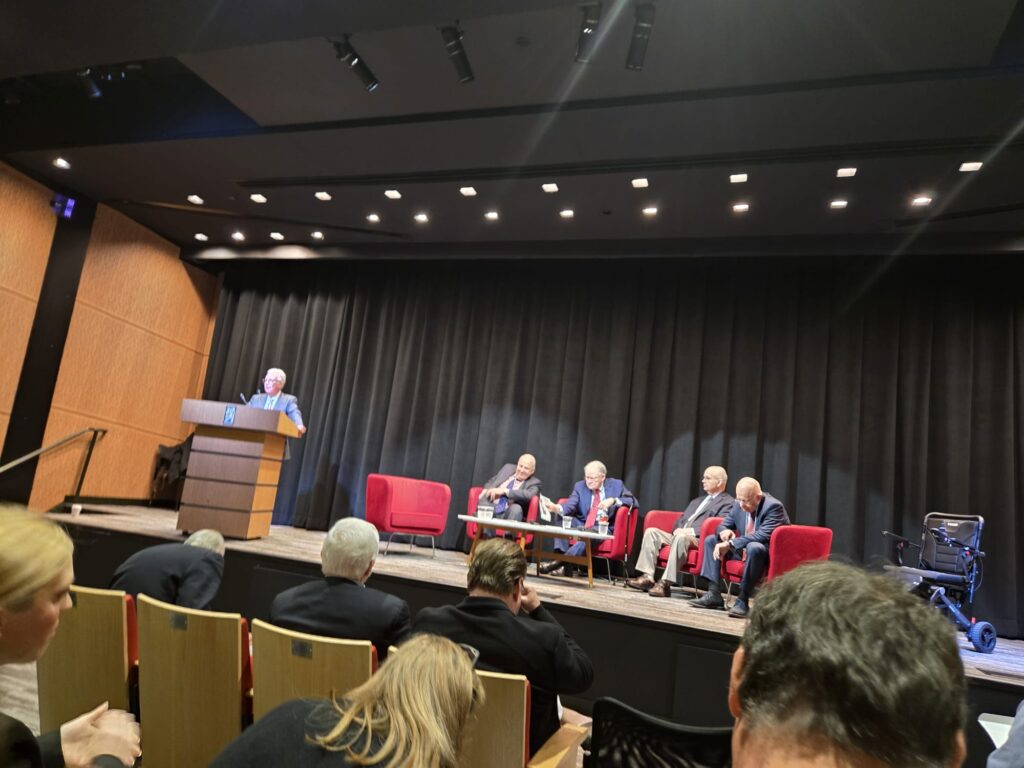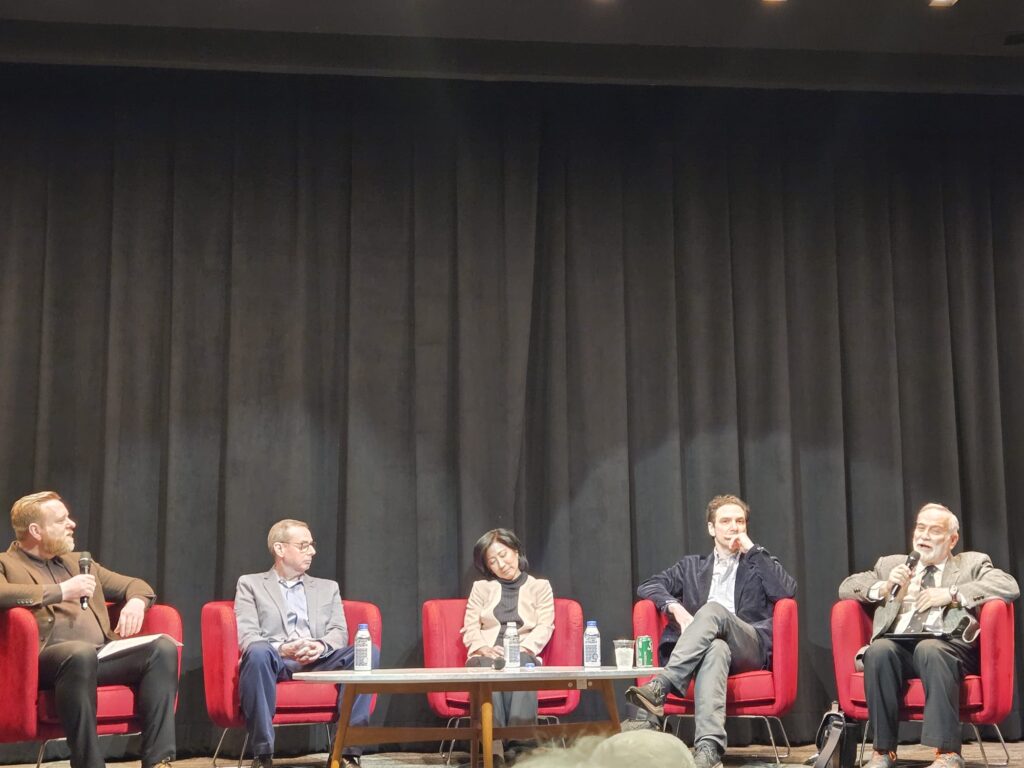by Irina Tsukerman
I was honored to take part in the Fifth Annual Conference organized by the Society for Intelligence History at the International Spy Museum in Washington DC. It was an unforgettable experience which brought together intelligence historians, practitioners, and many other dedicated professionals from related disciplines for two and a half days of mingling, memorable conversations, and extraordinarily informative panels. During the course of the conference we had the honor of hearing from a bipartisan panel of four former Directors of National security, and from a panel of national security and intelligence history writers and journalists. this was an extraordinary opportunity to engage on some of the hot topics in understanding intelligence and security policy and publication processes and challenges.


I presented my own paper on February 8, 2025 n the Israeli Intelligence History, chaired by Dr. Susan Perlman, of the United States Holocaust Memorial Museum. Learning from my esteemed colleagues was an inspiring and thought-provoking experience. My presentation was titled “The Soviet Union and anti-Zionism: The Original “Axis of Resistance” Has Roots in Moscow”. It focused on four broad areas of Soviet intelligence participation in anti-Zionism:
- Geopolitics and Strategy
- Revolutionary Activity and Ideology
- Coalition-Building
- Counterintelligence
Research into this fascinating area yielded many surprises and subjects for rich discussion and what potentially could be a long journey of unraveling some fascinating historical mysteries, but here is the abstract of my initial work as a taste:
The paper will examine the history of the Soviet Union’s backing for anti-Zionist movements, particularly in the Middle East, addressing the issues of information warfare tactics as well as funding and long-term strategy. Soviet-backed anti-Zionism had a wide-ranging impact in shaping the view of Israel and the notion of Jew hatred, in areas ranging from liberation movements to state policies, to academia and other soft power institutions around the world. The potency of these ideological effects should be examined considering their influence on key political infrastructure and events lasting to this day. Contrary to popular perception, Soviet anti-Zionism predates the partition plan (which the Soviet Union supported as a counter to the US influence in the Middle East); in fact, the Protocols of the Elders of Zion appeared in the West as early as 1917 and in the Arab language media in the 1920s, contributing to the hatred against the Jewish population and to the opposition against the nascent Zionist movement. Moreover, the Bolsheviks also had an ideological influence over the founders of the Muslim Brotherhood, establishing a long-lasting organized precedent of this type of opposition long before the peak of the Cold War.
Among the many takeaway from the conference well worth noting, I am grateful to share a few general highlights:
- Thorough comprehension of current trends and challenges facing the intelligence community is nearly impossible without the study of the history and the roots of both the IC and some of these challenges. Those who decide that understanding the past is well worth it for the way it enhances their capacity to inform the present will find facing a humbling repetition of patterns, personalities, and policies. In other words, the more things change, the more they stay the same.
- China’s intelligence relationship with Russia is tense and fraught with competition distrust, and aggressive espionage. The sooner Western governments learn to exploit these complex relations, the sooner they can more from defensive and oft incoherent responses to offensive and high-powered moves on the geopolitical gameboard.
- Presidential gripes about the intelligence agencies are nothing new. Specific institutions and agencies have indeed been heavily shaped and influenced by the policies and local conditions of the age and administrations when they were created. But every administration has has an opportunity to contribute to or even reinvent their relationships with the IC.
- Even the most intimate security relationships with the closest of US allies at times have been competitive, at odds with each other, challenged by miscommunications, divergent policies, complex personalities at the helm, and the meddling of foreign malign influences. Nevertheless, overall, these relationships, on the most basic individual levels, have been indispensable to helping solve some of the major crises of the day and to prevent untold disasters.
- Nothing is EVER fully what it appears to be, and some of the greatest US intelligence successes will never be known to the public. Unfortunately, most of what the public and policymakers judges the intelligence by are the well-publicized and highly specific failures. All the wrong lessons are often learned from focusing on the public aspect of those failures.
- As interesting and important as the Western and Soviet/Russian intelligence services are, understanding of the Middle Eastern, African, Southeast Asian, and other intelligence history is still lacking. The intelligence history field is still small and cozy but rapidly growing. I look forward to learning from my colleagues dedicated to exploring the fascinating and often difficult to reach history of intelligence in countries outside the “usual suspects”.
Not an everyone can be an intelligence officer, but there is something for everyone interested and curious and intellectually open to learning from history. I hope everyone curious and wishing to contribute to this fascinating field of study will be inspired by the vast array of diverse and stimulating topics and discussions to contribute, explore, and join in the conversations!


No responses yet